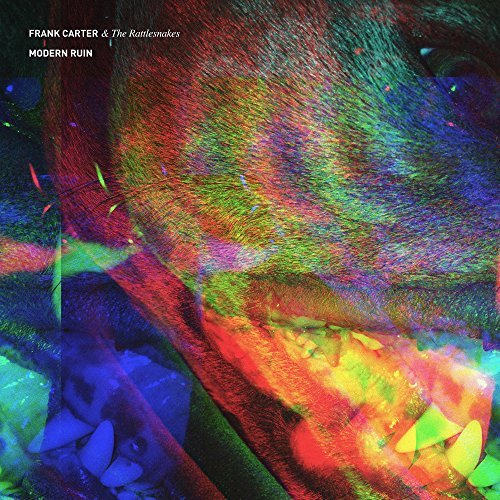Frank Carter has a bit of a history in the hardcore punk scene. After leaving his six-year gig as lead vocalist with outfit Gallows, citing ‘creative differences’, he took a break from the genre to record an alt-rock album with the band Pure Love. The Rattlesnakes debut, 2015’s Blossom, marked his return to hardcore. Modern Ruin sees Carter branch even further away from his punk roots than we’ve seen before, and returning fans may be a bit surprised by what’s on offer.
The opening track, ‘Bluebelle’, makes clear the intent from the off; comprised of clean guitar finger-picking and some surprisingly tender vocals, it’s the antithesis of a hardcore punk song. From here the album opens up to ‘Lullabye’ and ‘Snake Eyes’, more in the groove of 90s stoner rock than anything you might call punk, which is a sound that permeates most of the album. While ‘Jackal’ and the album’s title track show that Carter hasn’t lost his hardcore chops, The Rattlesnakes are by far at their most interesting when pushing themselves right out of their comfort zone. The Brit-pop swagger of ‘Acid Veins’, the rock ballad-esque ‘Thunder’, and the album’s closer, ‘Neon Rust’ (a meandering, shoegazey alt-rock number à la early Pavement), are particular standouts.
If anything, it’s a shame that there’s not more of this experimentation. There’s a little too much of a tendency to fall back into the old forced rhythms that drive hardcore punk but don’t quite translate to the slower-paced songs on display here. Combined with a lack of texture resulting from being just a little overproduced and a touch too slick, the album occasionally falls a bit flat.
The punk scene has long attracted a wide spectrum of political views, from the leftist social satire of Dead Kennedys all the way to, well, what we now euphemistically call the ‘alt-right’ (bonus Dead Kennedys…). It’s always been a genre defined by hostility, with the common thread being an anti-establishment ethos, whatever that establishment is perceived to be.
While Modern Ruin eschews, for the most part, the sound and the fury of hardcore punk, it embraces the ethos, taking aim at the rising establishment of hate and Carter’s own personal demons. Punk, then, in spirit if not in sound, it stands as a self-reflective showcase of where Frank Carter’s been – and where he might head next.
